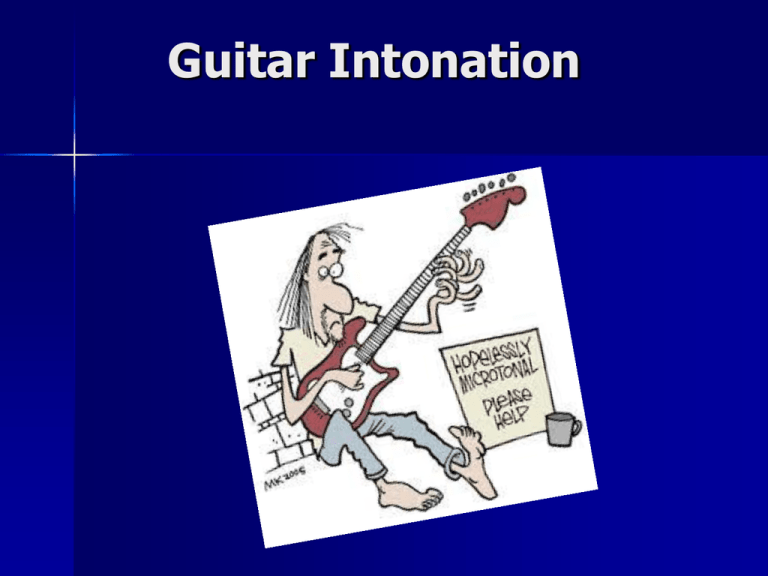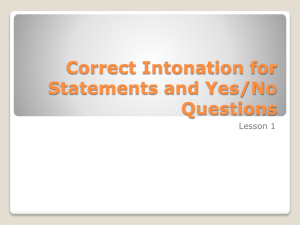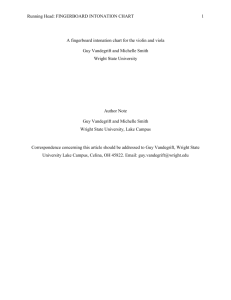Guitar Intonation & Setup
advertisement

Guitar Intonation Introduction Intonation happens AFTER Set Up. Intonation refers to the instrument being in tune along the fretboard. or simply stated, getting the guitar to play in tune with itself. Intonation is an iterative process Open tune the guitar Measure the frequency of each string and adjust string length accordingly. Check intonation by playing up and down the fret board. Tune open strings Standard Tuning big to little… E, A, D, g, b, e Intonation Getting the guitar to play in tune with itself Should be one octave from open string to 12th fret Intonation •Use Scope software •12th fret to bridge saddle •Sharp = string too short, turn CW to lengthen •Flat = string too long, turn CCW to shorten Intonation Intonate after tuning open Detune string before moving saddle! Intonation Any time you move the bridge saddle, the open string must be retuned Then re-check the 12th fret to see if it is an octave higher, or flat, or sharp. Repeat Intonation Guitar neck will change shape with seasons Guitar will “settle in” over the next 3-6 months Adjustments will be necessary Scope software link free http://www.zeitnitz.de/Christian/scope_en Scope software Tune the guitar, open strings, using SCOPE software E - 82Hz A - 110Hz D - 147Hz g - 196Hz b - 247Hz e - 330 Hz Scope software Scope Choose Frequency Analysis display no peak hold Scope Set Zoom slider to 20 and right-hand scroll all the way to the left to see frequencies in the range of the guitar Scope Set Band pass frequency filter to isolate desired frequencies, otherwise you will see many harmonic overtones! Adjust cut-offs for each string and octave Review 1. 2. 3. 4. 5. 6. Intonation happens AFTER Set-Up Open tune strings EADgbe Measure frequency of strings and adjust string length accordingly Any time saddles are moved, retune Repeat steps 4 & 5 as needed Check intonation by playing up and down the fret board. Let’s rock!! Congratulations This concludes guitar intonation dhunt@swell.k12.in.us









